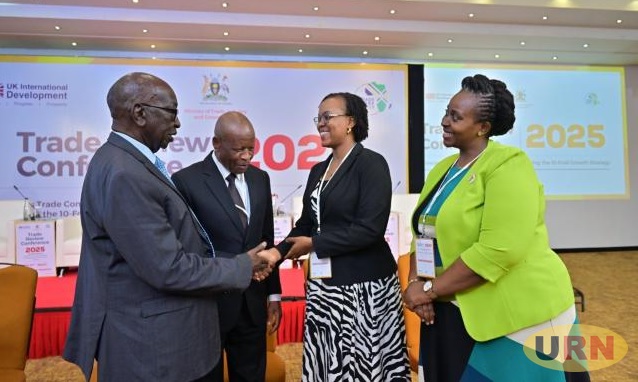
KAMPALA, UGANDA | THE INDEPENDENT | The Ministry of Trade, Industry and Co-operatives is introducing structural and operational changes in the sector. These include directly selecting trade attaches to foreign missions, reviving the cooperative Bank, among others.
Francis Mwebesa, the Trade Minister, says that the moves are coming in as build-ups to the country’s ambitious target of achieving the 10-fold economic growth by 2040.
Giving an example of strengthening the national chamber of commerce, Mwebesa notes that these issues, which might be overlooked, are very pivotal to enhancing trade development, especially at this time when the country has set itself a very ambitious target. “A chamber of commerce is for any country in the world, and this is purely a private sector-led organisation to help players to effectively communicate with the government,” he said.
The Minister adds that the other strategy is to revive the Co-operative Bank, which he says will be realized within one year. He adds that the bank is to be administered under two dockets, the savings society for the smaller co-operators, especially the beneficiaries of the Parish Development Model (PDM).
“The bank is expected to provide low-interest loans and better financial support for traders and farmers who struggle with high bank charges from commercial institutions. This will strengthen the country’s savings culture and boost investment in local businesses.
Wilson Mbadi, the State Minister for Trade, revealed that the Ministry is also moving to deploy trade attaches to Uganda’s foreign missions abroad, a role that has predominantly been for the Ministry of Foreign Affairs.
Mbadi says that other strategies focus on industrialization, value addition, and expanding exports in key sectors like agriculture, minerals, tourism, and technology.
Lynette Bagonza, the Permanent Secretary, emphasized that Uganda must shift from raw exports to processed goods that fetch higher prices in international markets. “Our manufacturing program aims to increase manufactured exports from 15 percent in 2021 to 20 percent by 2029. We must ensure our goods meet global standards and are competitive,” she stated.
Over the years, Uganda has faced challenges like red tape, high transportation costs, and non-tariff barriers (NTBs) that make trade expensive and slow. To address these issues, the government, in collaboration with TradeMark Africa, has built One-Stop Border Posts (OSBPs), which have reduced crossing times by 70 percent and increased trade traffic.
It has digitized trade processes through the Uganda Electronic Single Window (UESW), which has cut export approval times by 32 percent, saving businesses an estimated USD 25 million annually.
There has also been a strengthening of quality assurance by the Uganda National Bureau of Standards (UNBS), helping businesses meet international certification requirements to access global markets.
TradeMark Africa’s Country Director, Anna Nambooze, emphasized the need to support small-scale traders, especially women and youth. “Trade must be inclusive. We are working on trade financing, cross-border infrastructure, and digital systems to ensure Ugandan businesses thrive,” she said.
*****
URN
 The Independent Uganda: You get the Truth we Pay the Price
The Independent Uganda: You get the Truth we Pay the Price



